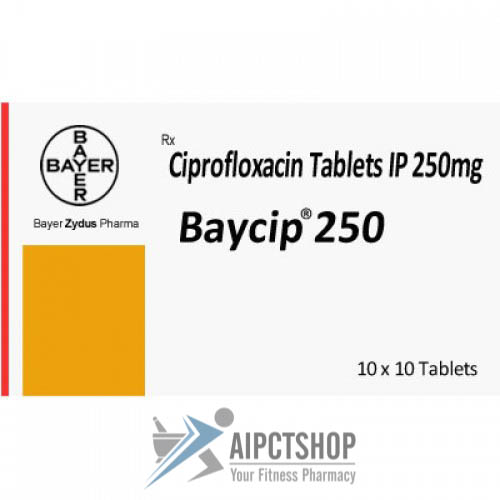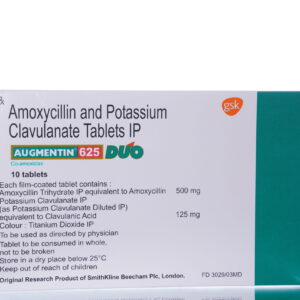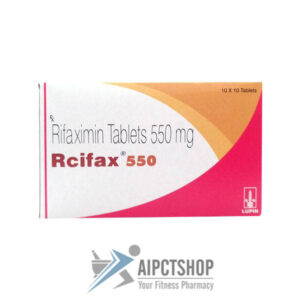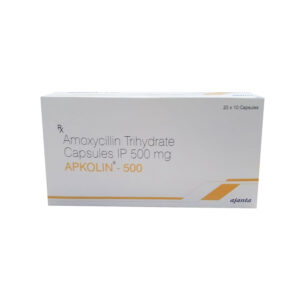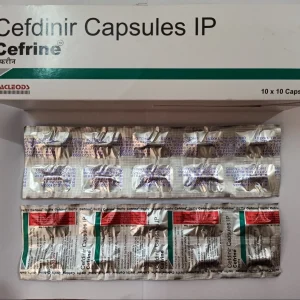Cipro Information
Ciprofloxacin is used to treat or prevent certain infections caused by bacteria. Ciprofloxacin is also used to treat or prevent anthrax (a serious infection that may be spread on purpose as part of a bioterror attack) in people who may have been exposed to anthrax germs in the air. Ciprofloxacin extended-release (long-acting) tablets are used only to treat certain types of urinary tract infections. Ciprofloxacin is in a class of antibiotics called fluoroquinolones. It works by killing bacteria that cause infections. Antibiotics will not work for colds, flu, or other viral infections.
Usage directions
Ciprofloxacin comes as a tablet, a suspension (liquid), and an extended-release tablet to take by mouth. The tablet and suspension are usually taken twice a day, in the morning and evening, with or without food. The extended-release tablets are usually taken once a day. Cipro XR brand extended-release tablets may be taken with or without food. Proquin XR brand extended-release tablets should be taken with a main meal of the day, preferably the evening meal. Take ciprofloxacin at around the same time(s) every day. The length of your treatment depends on the type of infection you have. Your doctor will tell you how long to take ciprofloxacin. Follow the directions on your prescription label carefully, and ask your doctor or pharmacist to explain any part you do not understand. Take ciprofloxacin exactly as directed. Do not take more or less of it or take it more often than prescribed by your doctor.
One brand or type of ciprofloxacin cannot be substituted for another. Be sure that you receive only the brand or type of ciprofloxacin that was prescribed by your doctor. Ask your pharmacist if you have any questions about the type of ciprofloxacin you were given.
Do not take ciprofloxacin with dairy products or calcium-fortified juices alone. However, you may take ciprofloxacin with a meal that includes these foods or drinks.
Swallow the tablets whole; do not split, crush, or chew them. If you cannot swallow tablets whole, tell your doctor.
If you are taking the suspension, shake the bottle very well for 15 seconds before each use to mix the medication evenly. Swallow the correct dose without chewing the granules in the suspension. Close the bottle completely after each use. Do not give the suspension to a patient through a feeding tube.
You should begin feeling better during the first few days of your treatment with ciprofloxacin. If your symptoms do not improve or if they get worse, call your doctor. If you are being treated for a urinary tract infection, call your doctor if you develop fever or back pain during or after your treatment. These symptoms may be signs that your infection is worsening.
Take ciprofloxacin until you finish the prescription, even if you feel better. Do not stop taking ciprofloxacin unless you experience the symptoms of tendinitis or tendon rupture described in the IMPORTANT WARNING section or the symptoms of allergic reaction described in the SIDE EFFECTS section. If you stop taking ciprofloxacin too soon or if you skip doses, your infection may not be completely treated and the bacteria may become resistant to antibiotics.
Other uses
In the event of biological warfare, ciprofloxacin may be used to treat and prevent dangerous illnesses that are deliberately spread such as plague, tularemia, and anthrax of the skin or mouth. Talk to your doctor about the risks of using this medication for your condition.
This medication may be prescribed for other uses; ask your doctor or pharmacist for more information.
Special precautions
Before taking ciprofloxacin,
- tell your doctor and pharmacist if you are allergic or have had a severe reaction to ciprofloxacin; any other quinolone or fluoroquinolone antibiotic such as gatifloxacin (Tequin) (not available in the U.S.), gemifloxacin (Factive), levofloxacin (Levaquin), lomefloxacin (Maxaquin) (not available in the U.S.), moxifloxacin (Avelox), nalidixic acid (NegGram), norfloxacin (Noroxin), ofloxacin (Floxin), and sparfloxacin (Zagam) (not available in the U.S.); or any other medications, or if you are allergic to any of the ingredients in ciprofloxacin tablets or suspension. Ask your doctor or pharmacist for a list of the ingredients.
- tell your doctor if you are taking tizanidine (Zanaflex). Your doctor will probably tell you not to take ciprofloxacin while you are taking this medication.
- tell your doctor and pharmacist what other prescription and nonprescription medications, vitamins, nutritional supplements, and herbal products you are taking or plan to take. Be sure to mention the medications listed in the IMPORTANT WARNING section and any of the following: anticoagulants (‘blood thinners’) such as warfarin (Coumadin, Jantoven); certain antidepressants; antipsychotics (medications to treat mental illness); caffeine or medications that contain caffeine (Excedrin, NoDoz, Vivarin, others); clozapine (Clozaril, Fazaclo); cyclosporine (Gengraf, Neoral, Sandimmune); diuretics (‘water pills’); glyburide (DiaBeta, in Glucovance, Micronase, others); certain medications for irregular heartbeat such as amiodarone (Cordarone), disopyramide (Norpace), procainamide (Procanbid), quinidine, and sotalol (Betapace, Betapace AF, Sorine); methotrexate (Rheumatrex, Trexall); metoclopramide (Reglan); certain nonsteroidal anti-inflammatory drugs (NSAIDs) such as ibuprofen (
Advil, Motrin, others) and naproxen (Aleve, Naprosyn, others); phenytoin (Dilantin, Phenytek); probenecid (in Col-Probenecid, Probalan); ropinirole (Requip); or theophylline (Elixophyllin, Theo-24, Uniphyl, others). Your doctor may need to change the doses of your medications or monitor you carefully for side effects. Many other medications may also interact with ciprofloxacin, so be sure to tell your doctor about all the medications you are taking, even those that do not appear on this list. - if you are taking antacids containing aluminum hydroxide or magnesium hydroxide (Maalox, Mylanta, Tums, others); didanosine (Videx); calcium, iron, zinc, or vitamin supplements; or sucralfate (Carafate), you will need to allow some time to pass between when you take a dose of any of these medications and when you take a dose of ciprofloxacin. Ask your doctor or pharmacist how many hours before or after you take ciprofloxacin you may take these medications.
- tell your doctor if you or anyone in your family has or has ever had a prolonged QT interval (a rare heart problem that may cause irregular heartbeat, fainting, or sudden death) or an irregular heartbeat, and if you have or have ever had nerve problems, a low level of potassium in your blood, cerebral arteriosclerosis (narrowing of blood vessels in or near the brain that can lead to stroke or ministroke), seizures, or liver disease.
- tell your doctor if you are pregnant, plan to become pregnant, or are breast-feeding. If you become pregnant while taking ciprofloxacin, call your doctor.
- you should know that ciprofloxacin may cause confusion, dizziness, lightheadedness, and tiredness. Do not drive a car, operate machinery or participate in activities requiring alertness or coordination until you know how this medication affects you.
- plan to avoid unnecessary or prolonged exposure to sunlight or ultraviolet light (tanning beds and sunlamps) and to wear protective clothing, sunglasses, and sunscreen. Ciprofloxacin may make your skin sensitive to sunlight or ultraviolet light. If your skin becomes reddened, swollen, or blistered, like a bad sunburn, call your doctor.
Food limitations and special diet when taking Ciprofloxacin
Do not drink or eat a lot of caffeine-containing products such as coffee, tea, energy drinks, cola, or chocolate. Ciprofloxacin may increase nervousness, sleeplessness, heart pounding, and anxiety caused by caffeine.
Make sure you drink plenty of water or other fluids every day while you are taking ciprofloxacin.
Missed dose
If you miss a dose of ciprofloxacin, take the missed dose as soon as you remember it. However, if it is almost time for the next dose, skip the missed dose and continue your regular dosing schedule. Do not take a double dose to make up for a missed one.Do not take more than two doses of the tablets or suspension or more than one dose of the extended-release tablets in one day.
Possible side effects
Ciprofloxacin may cause side effects. Tell your doctor if any of these symptoms are severe or do not go away:
- nausea
- vomiting
- stomach pain
- heartburn
- diarrhea
- feeling an urgent need to urinate
- headache
- vaginal itching and/or discharge
Some side effects can be serious. If you experience any of these symptoms, or those mentioned in the IMPORTANT WARNING section, stop taking ciprofloxacin and call your doctor immediately:
- severe diarrhea (watery or bloody stools) that may occur with or without fever and stomach cramps (may occur up to 2 months or more after your treatment)
- rash or blisters
- hives
- itching
- tingling or swelling of the face, neck, throat, tongue, lips, eyes, hands, feet, ankles, or lower legs
- difficulty breathing or swallowing
- hoarseness or throat tightness
- wheezing
- rapid, irregular, or pounding heartbeat
- fainting
- fever
- joint or muscle pain
- unusual bruising or bleeding
- extreme tiredness
- lack of energy
- loss of appetite
- pain in the upper right part of the stomach
- yellowing of the skin or eyes
- dark urine
- flu-like symptoms
- seizures
- dizziness
- confusion
- nervousness
- restlessness
- anxiety
- difficulty falling asleep or staying asleep
- nightmares or abnormal dreams
- not trusting others or feeling that others want to hurt you
- hallucinations (seeing things or hearing voices that do not exist)
- depression
- thoughts about dying or killing yourself
- uncontrollable shaking of a part of the body
- pain, burning, tingling, numbness, and/or weakness in a part of the body
Ciprofloxacin may cause problems with bones, joints, and tissues around joints in children. Ciprofloxacin should not normally be given to children younger than 18 years of age unless they have certain serious infections that cannot be treated with other antibiotics or they have been exposed to anthrax in the air. If your doctor prescribes ciprofloxacin for your child, be sure to tell the doctor if your child has or has ever had joint-related problems. Call your doctor if your child develops joint problems such as pain or swelling while taking ciprofloxacin or after treatment with ciprofloxacin. Talk to your child’s doctor about the risks of giving ciprofloxacin to your child.
Ciprofloxacin may cause other side effects. Call your doctor if you have any unusual problems while taking this medication.
Storage and disposal of Ciprofloxacin
Keep this medication in the container it came in, tightly closed, and out of reach of children. Store the tablets and extended-release tablets at room temperature and away from excess heat and moisture (not in the bathroom). Store the suspension in the refrigerator or at room temperature, closed tightly, for up to 14 days. Do not freeze ciprofloxacin suspension. Throw away any suspension that is left over after 14 days and any medication that is outdated or no longer needed. Talk to your pharmacist about the proper disposal of your medication.
Emergency/overdose
In case of overdose, call your local poison control center. If the victim has collapsed or is not breathing, call local emergency services.
Other important information
Keep all appointments with your doctor and the laboratory. Your doctor may order certain lab tests to check your body’s response to ciprofloxacin.
Do not let anyone else take your medication. Your prescription is probably not refillable. If you still have symptoms of infection after you finish taking ciprofloxacin, call your doctor.
It is important for you to keep a written list of all of the prescription and nonprescription (over-the-counter) medicines you are taking, as well as any products such as vitamins, minerals, or other dietary supplements. You should bring this list with you each time you visit a doctor or if you are admitted to a hospital. It is also important information to carry with you in case of emergencies.
Disclaimer
We provide only general information about Cipro which does not cover all possible drug integrations, directions or precautions. Information at our website cannot be used for self-treatment and self-diagnosis. Any specific instructions for a particular patient should be agreed with his health care adviser or doctor in charge of the case. We disclaim reliability of this information and mistakes it could contain. We are not responsible for any direct, indirect, special or other indirect damage as a result of any use of the information on this site and also for consequences of self-treatment.


